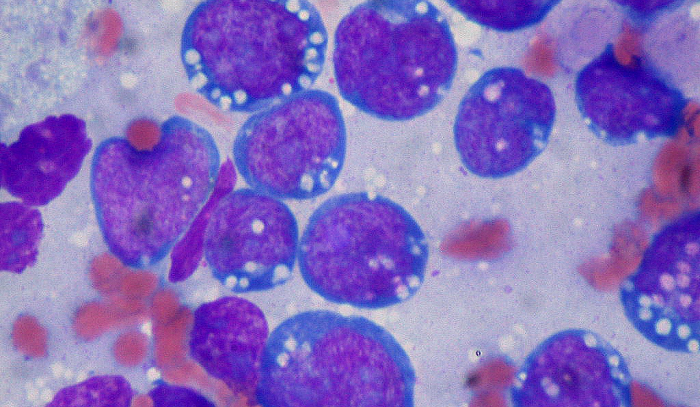
Burkitts lymphoma — A cancer in children
Burkitts lymphoma is another common cancer frequently diagnosed in children. It is named after Dr. Dennis Burkitts, an Irish surgeon who worked in Uganda and described this cancer.
Burkitts lymphoma was originally described in children, but this disease is also observed in adult patients. It is one of the fastest growing cancers in humans, with a rapid and aggressive clinical course.
The exact cause and mechanisms leading to the development of this cancer is not known. However, there has been a strong association between malaria and a virus called Epstein-Barr virus with development of this cancer. It has been suggested that malaria and Epstein-Barr virus interact in a way that switches off the normal body mechanism that suppress cancer development- the so-called tumour suppressor genes.
Globally, Burkitts lymphoma is endemic in certain regions of Africa and other tropical locations. There is no racial predilection. Males are affected 2-3 times more often than females.
Children affected with this condition normally present with jaw swelling. This can be one sided or on both sides. Because of the rapidly enlarging nature of this tumour, the bones of the face is invaded by the tumour leading to severe distortion of the face in advanced cases. There usually is malalignment and loosening of the teeth in the jaw.
This cancer can also manifest as huge swellings around the neck when it involves lymph nodes around the neck. It can also involve the abdominal organs, causing huge multiple swellings in the abdomen that can easily be seen and felt. It can also invade the central nervous system giving symptoms of central nervous system dysfunction.
Some of the symptoms and signs of this cancer include;
Abdominal tenderness
Ascites - fluid in the abdominal cavity
Abdominal mass/masses
Enlargement of the liver and spleen
Bleeding into the skin in the form of a skin rash
Meningeal signs manifesting as severe headache, seizures, convulsions, visual disturbances and even paralysis.
Painless lymph gland swellings.
Other nonspecific symptoms include nausea and vomiting,,loss of appetite, change in bowel habits, or both, weight loss and gastrointestinal bleeding.
Like all cancers in children, blood tests, x-rays and scans, bone marrow aspirate and lumbar puncture are done to determine the extent of the disease. Other tests are also done to determine the kidney function because the medications given can kill the tumour so fast that they can compromise an already struggling kidney. Stool and urine are tested to ensure no infections and worm infestations exist prior to commencement of the cancer medicines. Also since the cancer medications kill all rapidly dividing cells including blood cells, there is regular check of the blood levels as well as the white cells which protect against infections.
The prognosis of Burkitt lymphoma in children correlates with the bulk of disease at the time of diagnosis. Those caught in its early stages are very easy to cure. Those in advanced stages, and spread to other parts of the body are curable but requires very intense treatment protocol.
Before the advent of aggressive therapeutic programmes, children with Burkitt lymphoma died rapidly. With appropriate management, the survival rate has improved significantly. With simple medications, given in cycles, a lot of children are declared cancer-free daily at the cancer unit of Korle Bu Children's Block.
Emotional support, good nutrition, psychological support and play therapists are very helpful to successfully treat children with cancer. Parental education and support groups are priceless in a holistic treatment of the family. Once again, the single most important event that influences cure is early detection of these cancers.
astom2@yahoo.com
A member of Paediatric Society of Ghana.
